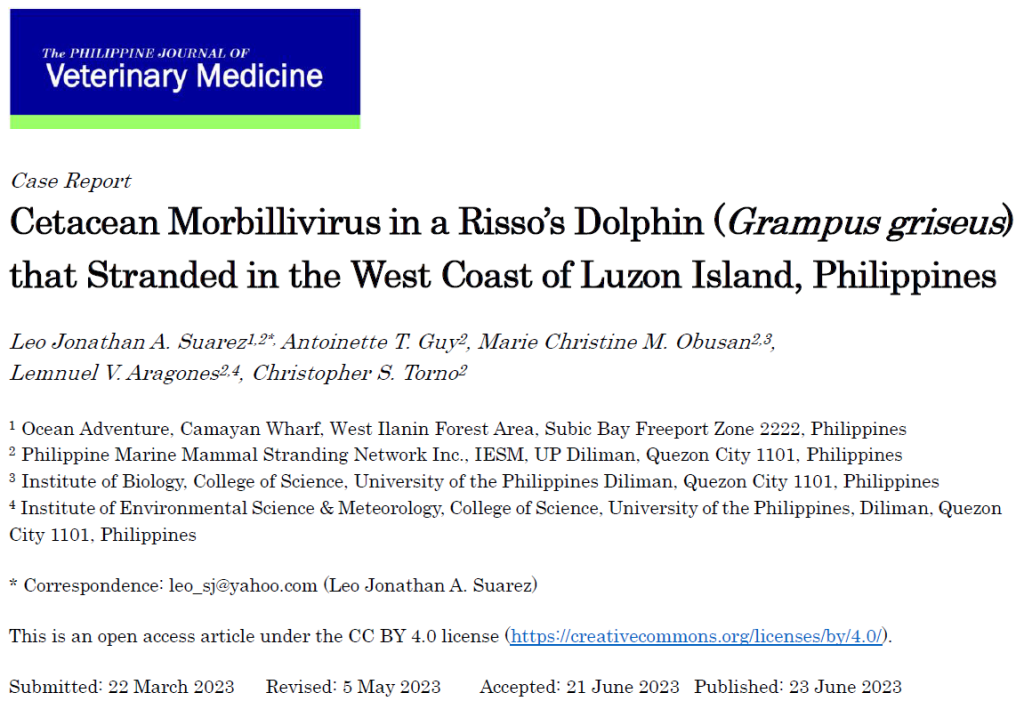
Abstract
Background: Cetacean morbillivirus (CeMV) is a highly infectious virus of whales, dolphins, and porpoises and is one of the major viral pathogens of cetaceans. It can infect a wide range of cetacean species and has caused mass mortalities in several parts of the world in the past 30 years. The virus causes immunosuppression that often results in secondary viral, bacterial, and parasitic infections (including Toxoplasma gondii) in an infected animal. On 10 January 2019 a Risso’s dolphin stranded in Morong, Bataan, Philippines with recurring diarrhea. The dolphin succumbed three months later while in rehabilitation. Methodology: Necropsy, histopathology, serology, and PCR were carried out to determine the cause of death and other clinical signs. Results: Gross necropsy showed that the animal died due to intestinal volvulus. Serology revealed CeMV antibody titers at ≥1:512 via CeMV virus neutralization, as well as IgG antibody against T. gondii. No CeMV RNA was detected. Conclusion: To the best knowledge of the authors, this is the first documented case of CeMV infection in a cetacean from the Philippines. The absence of reports of mass mortalities that can be attributed to CeMV in the Philippines suggests that the virus is likely endemic in the region.
Keywords
cetacean morbillivirus (CeMV), gastrointestinal toxoplasmosis, Toxoplasma gondii, Risso’s dolphin, entanglement


